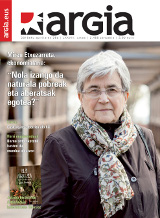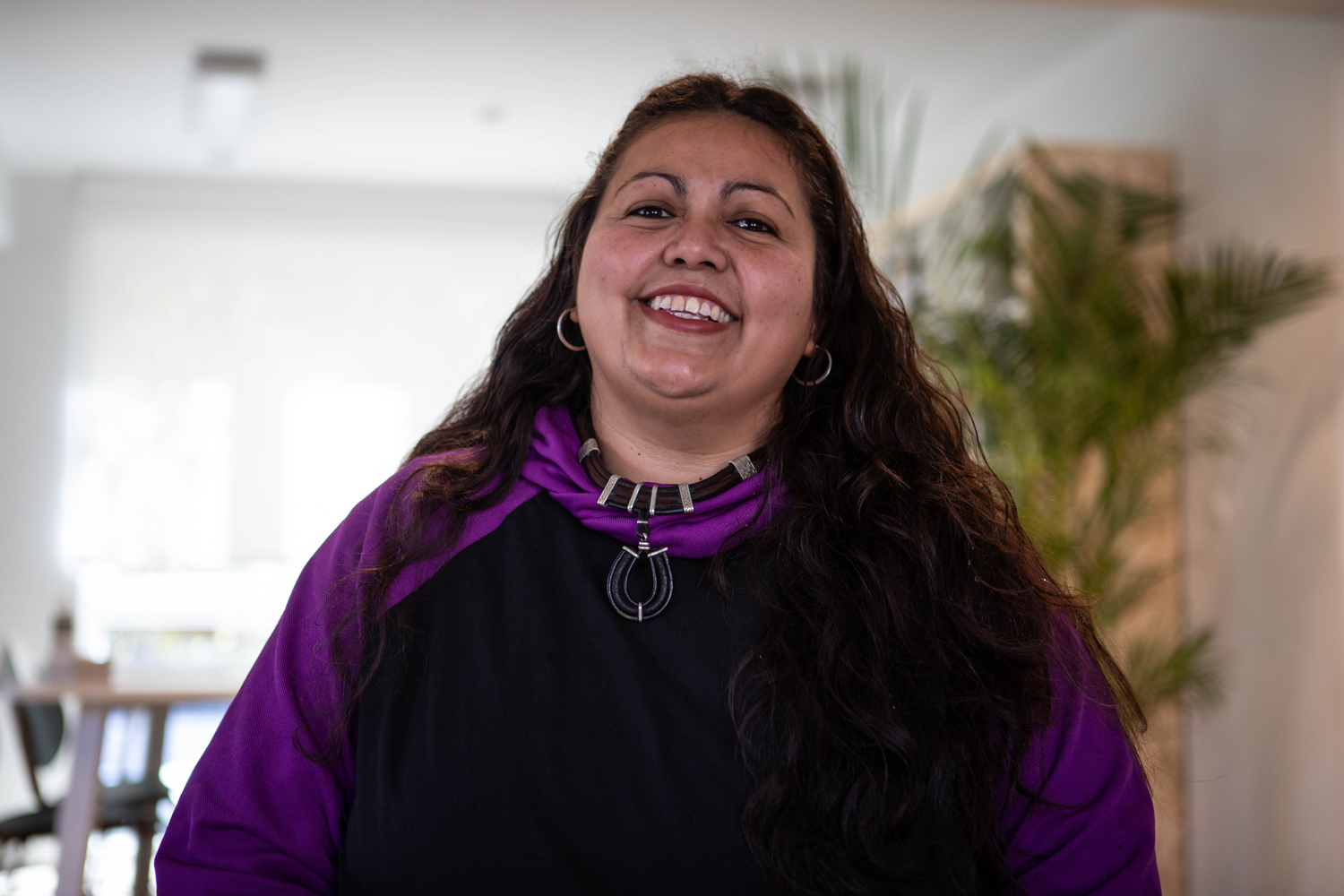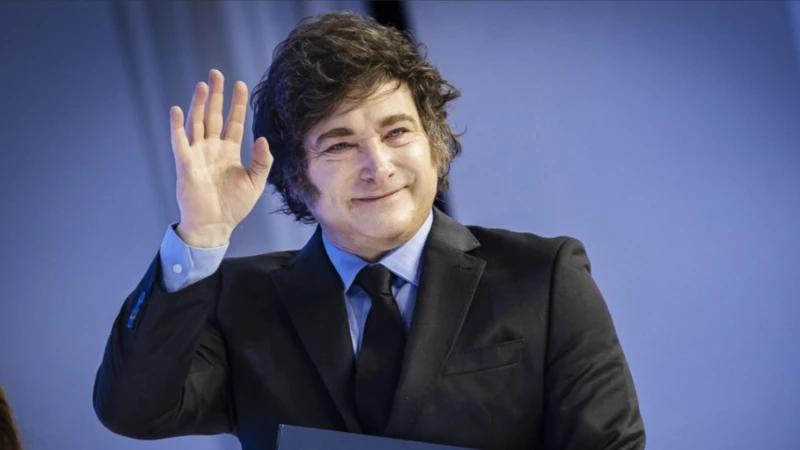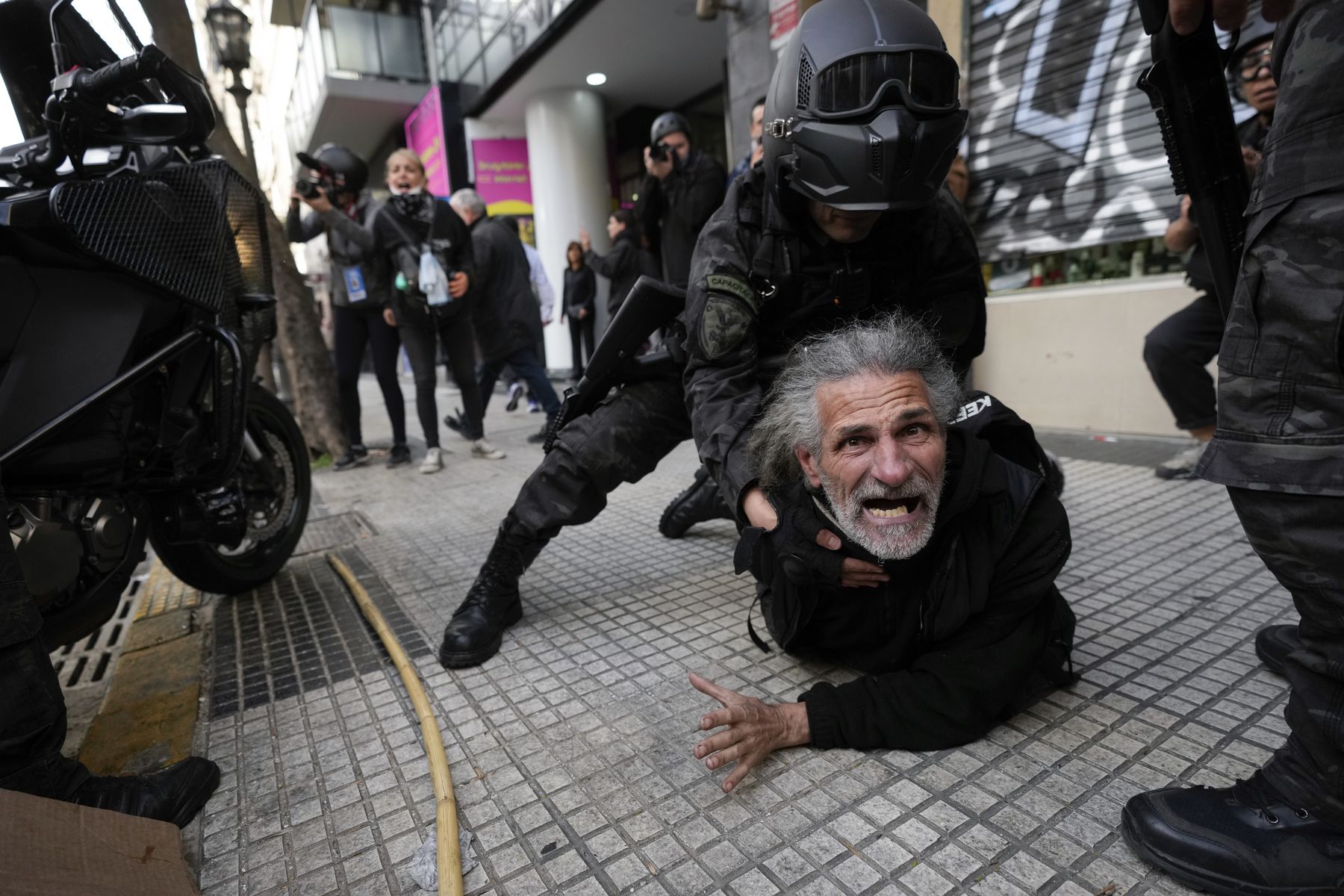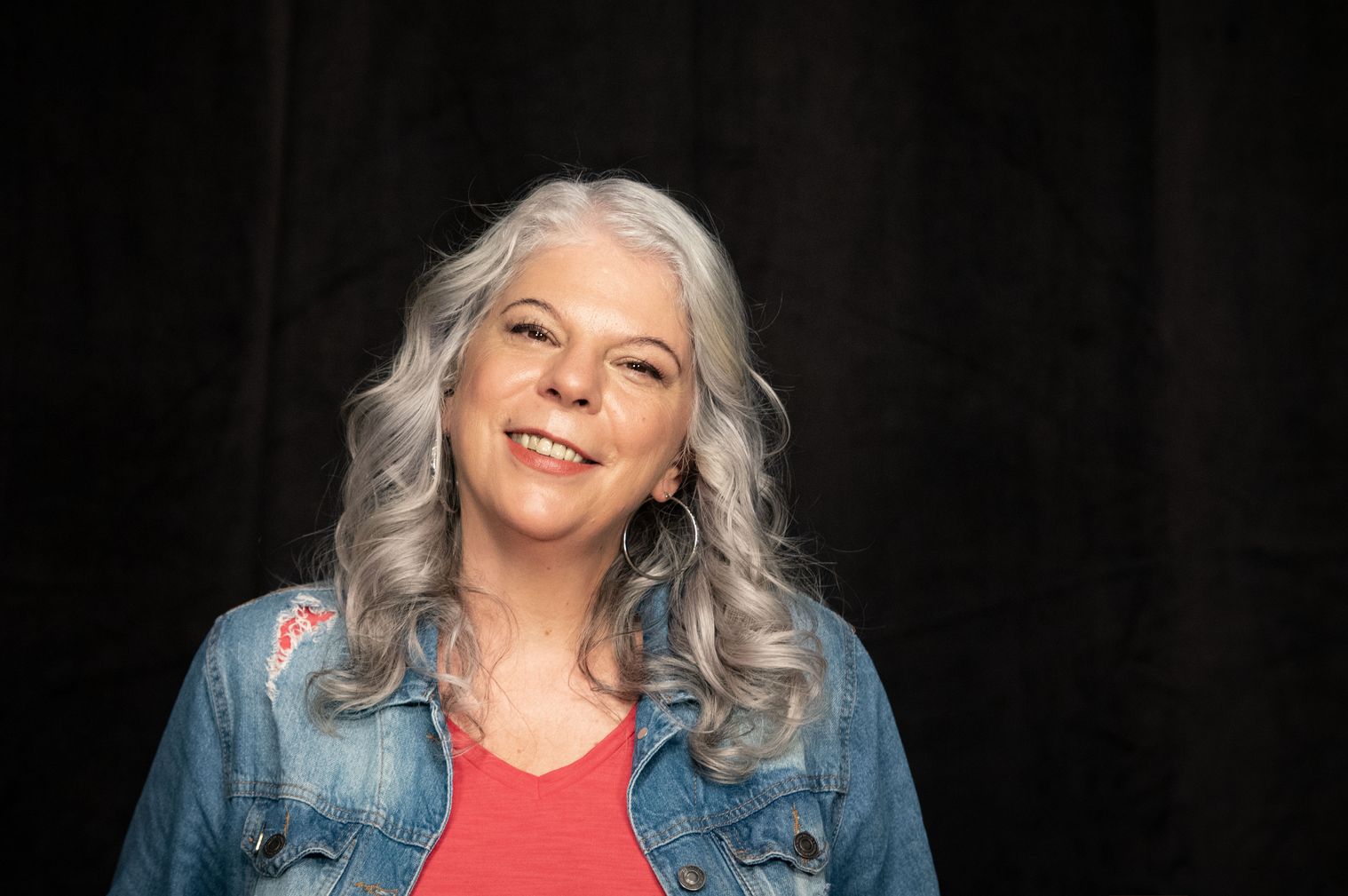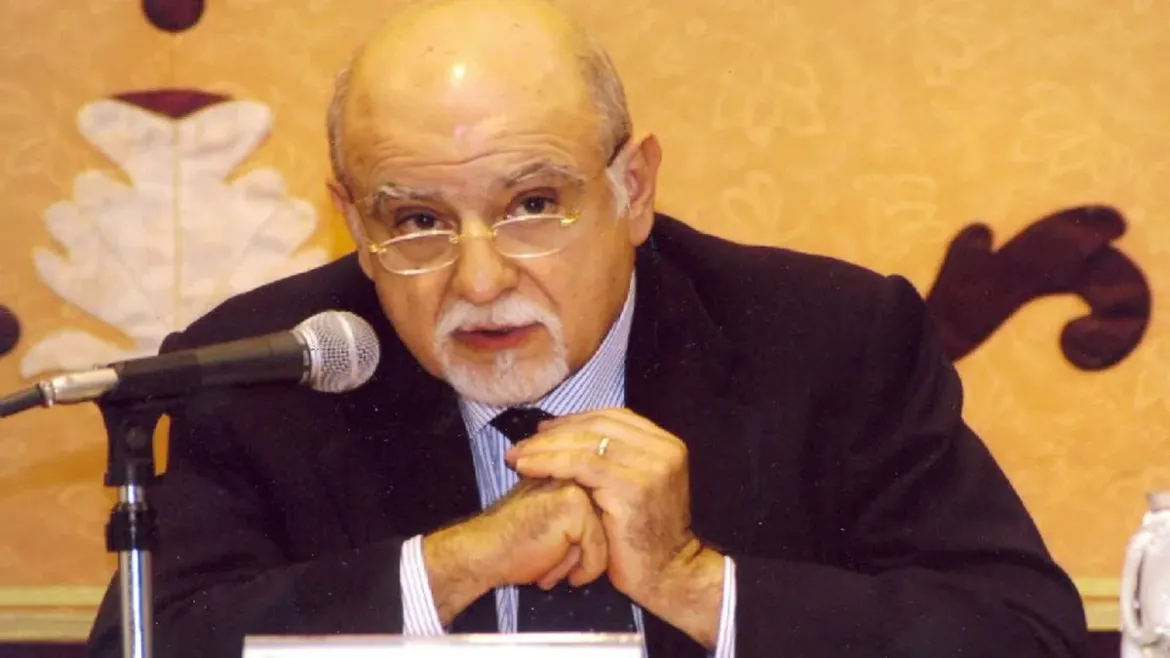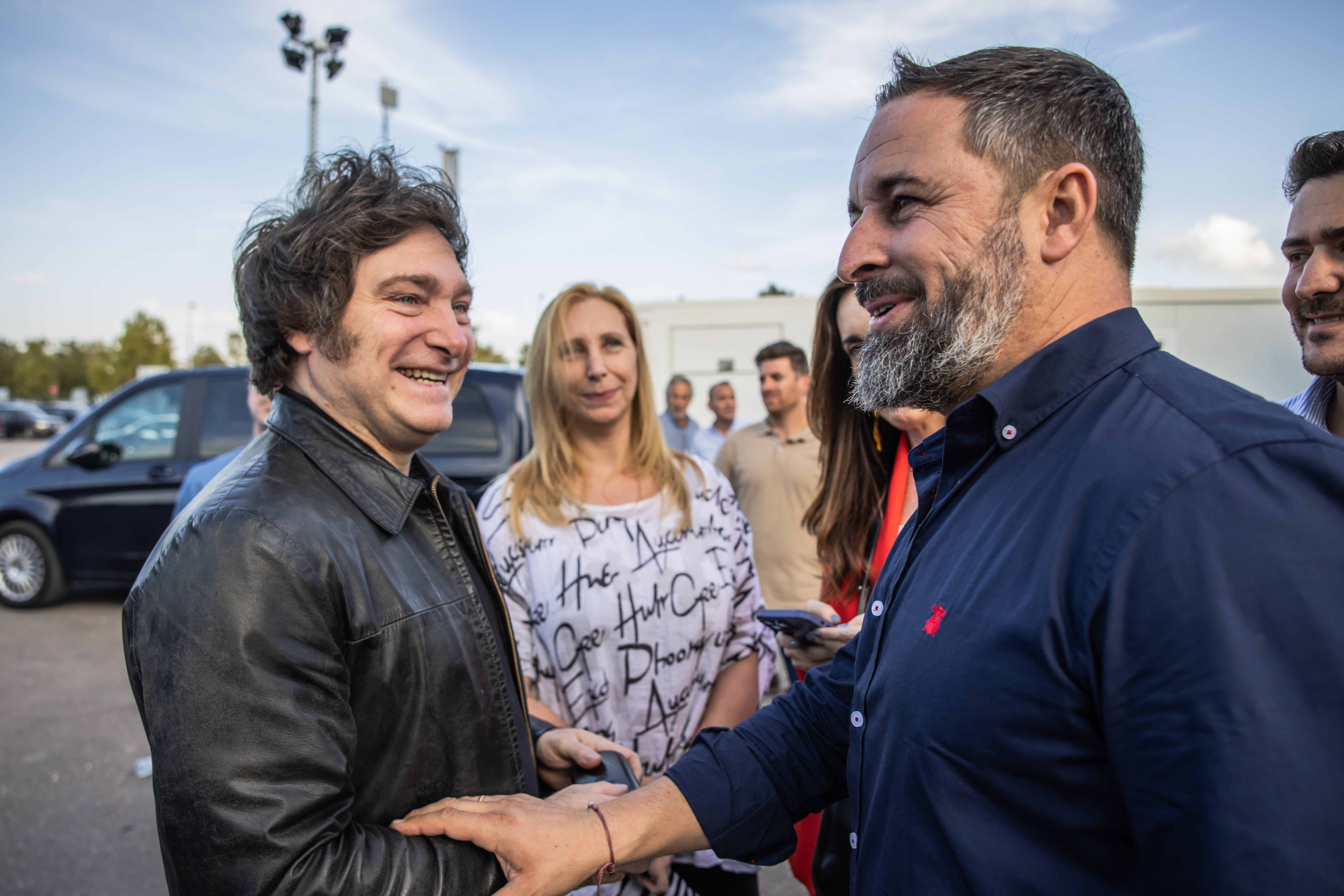"When my case appeared, the Argentinians considered it a victory"
- When he recognized his adoption and decided to undergo tests, Ignacio could not imagine the calcite that the genetic test was going to give him. This pianist, raised within a humble peasant family in Olavarria (Argentina), was the son of Laura Estela de Carlotto and Walmir Oscar Montoya, grandson of the director of the Association of Amones de la Plaza de Mayo.
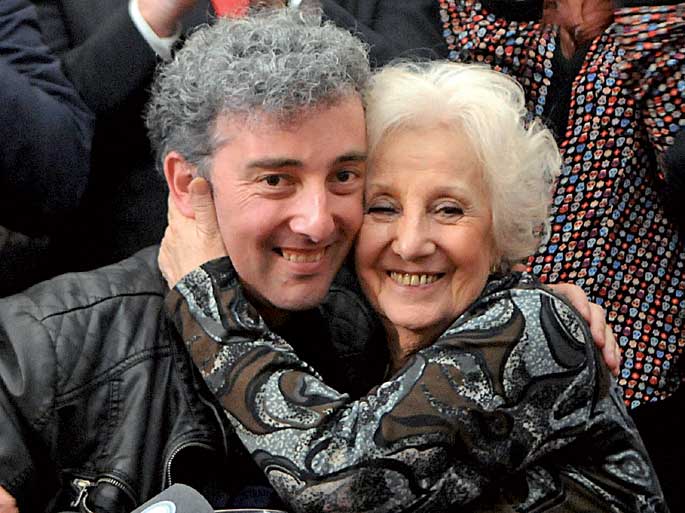
He had just finished the 1978 World Cup in Argentina, when the military robbed his newborn mother of arms and handed it over to another family before it was executed. His mother spent five hours with his son, Guido. Carlotto's wake has taken almost four decades to find the baby who gave birth to her daughter, who has been a mother and mother. Ignacio Montoya Carlotto is one of 116 people who have regained their identity after the military coup.
How have you lived these months after you passed from being an anonymous character to being on everyone's lips?
I've survived, that's the summary of these last few months. I've had to learn how to come to a new life. When everything changes so quickly, it's hard to maintain the previous life, and in that learning, you have to learn to distinguish your private life from the public life. You have to learn that people are looking at you. When you get in touch with your new family, you also have to learn. In these few months it has touched me to live a process that can last for years.
Have you been forced to give explanations that I should not give?
That has been another learning, what needs to be given and to whom needs to be given answers. For example, in the new identity document that I will acquire soon, I will not name “Guido”. I put Ignacio with the two surnames of my biological parents, Montoya and Carlotto. Well, the lack of use of Guido's name has led to the disagreement of some who are not of my family. They ask me for explanations that I should not give.
Do you think that the echo of what had happened was going down?
I don't know. Now I'm starting to realize the size of what happened. For three or four months I thought that everything would be finished, that it would remain unknown in the streets, and it has not been fulfilled at all. When I meet Carlotto's granddaughter, I meet those who tell me she cried, or those who tell me that when they threw my images on television, I don't know where they were... And I'm still at the same speed as I've had since the news broke out.
After these months, do you think it is wrong that Judge Servini has not kept your name anonymously?
He was forced to remain silent. When I started researching my parents, they made me sign a confidentiality contract. But the news was so strong that the people involved responded warmly, including the judges. And I don't think I did it out of bad will. I was very excited and unwittingly pronounced my name. At first it brought me a big problem, but at the same time it helped me overcome many stages. If it had happened otherwise, it would have taken months to save what had happened in a week.
What was the first few weeks after you knew your identity?
They were terrible. First I fled, hidden, away from journalists. I couldn't turn on television because all the channels saw my face. With that first week, there would be enough material to make a Hollywood movie.
However, at the presentation press conference you offered along with Estela de Carlotto, you showed a quiet and smiling look.
The news came at the most opportune time. If I had arrived a few years earlier, I don't know how I would have done it. I got caught when I was 36, I have my profession, my partner ... On the other hand, before I gave the press conference, I decided to tell the truth. And if you tell the truth, you can't be wrong. That's why I felt quiet. In addition, the speed I had taken didn't allow me to walk back and forth with the subject. When you decide, you have to resort to intuition, and sometimes intuitions get it right.
I guess the psychological pressure you've had to endure has been very hard. If your adoptive parents had known and hidden your past from the beginning, wouldn't it have been easier for you? Cut it off with a family and start with a new one?
I don't know. And that is that, at first, the question of parents divided public opinion. Some of them complained against my adoptive parents and were attributed the responsibility for stealing the baby. I myself had had contradictions in my head. But now I am very clear that they have not robbed me and that my adoptive parents have also been victims, double victims.
Has Argentina overcome the debate on historical memory?
Since the news spread to the four winds, the protagonists have experienced good sensations. The reception of society has been very positive: we have been approached by people from parties on the right, from different origins... Sometimes, in the anonymity of social media, three or four crazy people hide and throw terrible scandals at us. It may seem that they represent an important part of Argentine society, but it is not. Unfortunately, it is true that the debate is sometimes politicised. It cannot be denied that the two governments of the Kirchner family have turned human rights into the axis of government policy, but human rights are above any political division.
Can Argentina be a good example to address the massacres of the 1936 Civil War?
I just learned that you have the corpses buried in the corners of the road. The truth is that I do not know if our example is exemplary. However, memory and human rights policies are very strong here, they have had a great influence on citizenship. When my case emerged, society saw it as a victory. The Argentinians are proud of how we have handled the issue of memory. We do not want to see a repetition of what we suffered 30 years ago.
Have you been invited to participate in politics?
I have made my position very clear from the outset and have not made much effort. Mine is the field of music, and that's the tool that I use to change the world.
You grew up among the peasants. My father was a pawn. Where does being a musician come from?
I also reflected this way. Instead of ending up in a profession related to agriculture, I chose the art field. Now, knowing my biological parents and the new families, I think that interest can come from there.
Before you know your past, you wrote the song For Memory.
This song predicted what would come next. I wrote it in third person, but feeling first-person, like it was something that was happening to me. That gave me cause for reflection. It's a very special song and it's become almost the soundtrack of these days. For me it's a very important song; but the most valuable song is the one that's going to come, and not the one that's made.
As for ideology, what is the difference between the past and the present Ignacio?
Actually, I don't know if I've changed a lot. My family taught me simple and simple values: truth, honesty, work and little more. And most of the ideologies that have followed me are linked to these values. The education that I received from the adoptive parents is like the one that my biological parents could give me, they put me on the same path. As a result, I have been able to cope with what has touched me most calmly. The ideology of my new family is the same as mine, and if that's a magical thing.
And has your opinion about Estela de Carlotto changed?
When I saw Estela de Carlotto I thought she was a wrestler, a wrestler, with a unifying speech, a woman looking for her granddaughter with kindness and affection. Well, that woman is no longer Mrs. Estela de Carlotto, but Grandma Estela. And I laugh at him, I laugh, I laugh, I speak, I travel, I study ...
And Hortensia, your father's mother?
Hortensia, a 92-year-old grandmother, is a tractor unit! It is not as famous as Estela, but in southern Argentina his work in favor of teaching has been greatly appreciated. It's crazy, it's very rare, to have two grandmothers so strong!
Jaioberrien lapurreta eta trafikoa izan zen 1976tik 1983ra Argentinan indarrean izan zen diktadura militarraren Estatu terrorismoaren ardatzetako bat. Videla jeneralak “ordena ezartzeko beharrezkoak diren argentinarrak hilko” zituela aurreratu, eta desagerpenak eta bahiketak herrialde osoan barrena zabaldu ziren.
Preso hartu zituzten “subertsiboen” artean emakume haurdunak zeuden; presondegi klandestinoetan bizirik mantendu zituzten, umea erditu bitartean. Maiatzeko Plazako Amonen kalkuluen arabera, militarrek guztira 500 haur lapurtu zituzten. Jaioberrien agiriak faltsutu, eta adopzioan eman zituzten, maiz gurasoen hilketarekin harremana izan zuten militarren esku gelditu ziren. 1980an, artean diktadura bete-betean zela, Amonen bultzada nekaezinari esker, lapurtutako lehenbiziko haurrak berreskuratu zituzten: Tatiana eta Mara Laura Ruarte. Ordutik hona 116 haur aurkitzea lortu dute, eta lan horretan azterketa genetikoek egundoko garrantzia izan dute.
Martxoaren 8a Getxo bere bizitokian igaro du: kumbia dekolonial eta antiarrazista topaketa antolatu du Algortako Herriko Tabernan, Abianen, Hija del Nopal DJrekin batera.
Argentinatik Getxora migratu zen Celeste Agüero, kantutegi herrikoi batekin eta poesia xuxurlatzeko... [+]
On June 28 of this year, Casa in Flames (Etxea Sutan), a dramatic comedy directed by Dani de la Orden, premiered. I told him I thought I would see him a month before the festival, when I was talking to a friend, and he recommended it to me. Although we do not always agree, the... [+]
On 25 May, Fatherland Day was celebrated. Argentina. There they now have a president who loves his homeland and travels the world, making him known. He also went through Spain to go to the satanic “Europa Viva 2024”. Those who ridiculed, now frighten us because they are... [+]
The star of the Argentine neoliberal, Javier Milei, has become the reflection of the Trumpian incongruity with the media impact of its public interventions. Similarly, the corrosive use of social networks such as X makes it possible to undo any opposition strategy at least... [+]
Azken hiru hilabeteetan %8 igo da tasa: 3,5 milioi pertsona gehiago daude pobreziaren mugaren azpitik. Mileiren neurriak txalotu ditu Nazioarteko Diru Funtsak, langileen pobretzea handitzen den bitartean.
He doesn't win, he's crazy, what he's saying is not possible. Anyone sees that a state is not prepared to govern. He's a theorist, he's not aware of reality. The steps taken by feminism are irreversible, citizenship will not accept to question certain rights. Those on the left and... [+]
Given the political shortsightedness of the International Monetary Fund, by not applying a kit to the Argentine debt received from the neoliberal era of Macri, President Fernández began to approach Russia and China to attract essential investments to stimulate mutual trade... [+]









